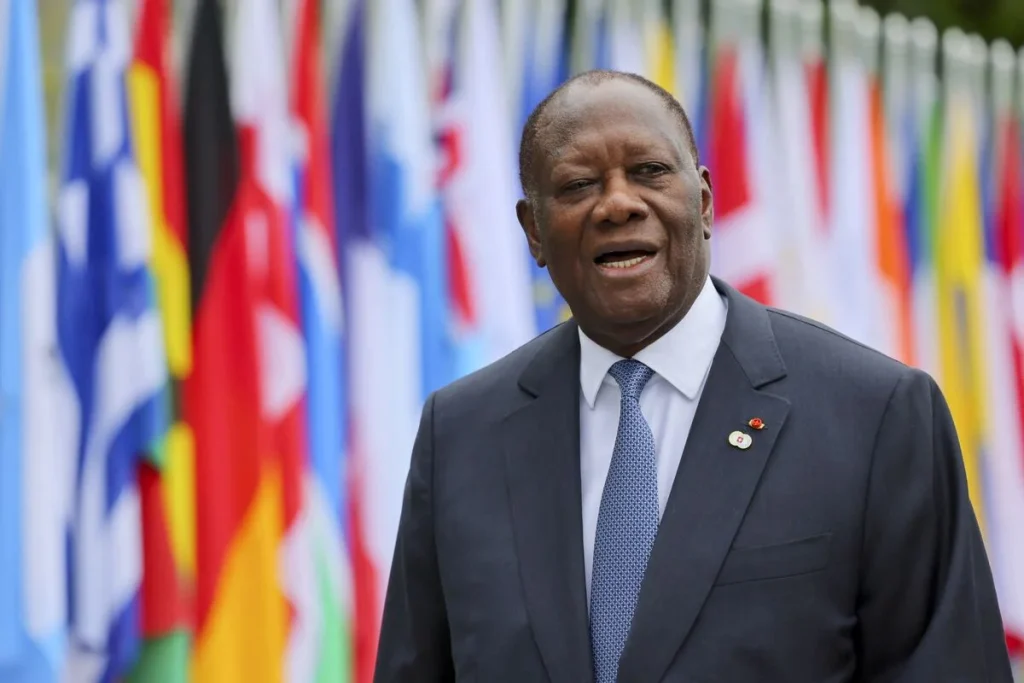The sun rose over Abidjan on Monday, October 27, and with it came the news every Ivorian already whispered: President Alassane Ouattara, at 83, had clinched a fourth term.
The Electoral Commission declared him winner with a staggering 89.7% of the vote. For a man who’s ruled since 2011, this wasn’t a surprise it was a script.
But beneath the calm, a question pulses like a drumbeat: When will he let go?
“Generational Transition” or Empty Promise?
Ouattara calls this his “final act” a bridge to hand power to younger leaders in his Rally of Houphouëtists for Democracy and Peace (RHDP).
He paints a picture of mentorship, guiding Ivory Coast into a new dawn. Yet critics scoff: Where are the heirs? The transition feels like a ghost spoken of, never seen.
Back in 2016, a new constitution reset term limits, letting him run again. Supporters cheered “legal continuity”; opponents cried “constitutional sleight of hand”. Sound familiar? It’s a playbook echoing across West Africa.
A Race Without Rivals
This election wasn’t about who ran it was about who couldn’t.
- Laurent Gbagbo, former president, blocked by a conviction.
- Tidjane Thiam, global finance star, disqualified over citizenship.
With giants sidelined, turnout barely scraped 50% same as 2020. The ballot felt less like a choice and more like a coronation.
Youth on the Sidelines
Over two-thirds of Ivorians are under 30. They scroll past Ouattara’s speeches, eyes fixed on jobs, tech, and futures their leaders rarely mention.
Civil society warns: apathy is brewing. When politics excludes the young, frustration festers.
On social media, the memes are sharp:
“He says it’s his last term… like he said the last last term.”
Succession Whispers in the RHDP
Behind closed doors, ambition stirs. Younger RHDP figures circle, hungry for the spotlight. Names float:
-
Patrick Achi, ex-Prime Minister
-
Téné Birahima Ouattara, the president’s brother and Defense Minister
But no plan emerges. The inner circle clings tight. Ouattara’s “transition” remains a rumor, not a roadmap.
The Stability Paradox
Give Ouattara this: he rebuilt a nation. After civil war, he delivered 6% annual growth, new roads, gleaming ports. Supporters say: Only experience steers us past chaos—like Mali, like Burkina Faso.
Yet critics counter: Stability shouldn’t mean stagnation. Democracy thrives on renewal, not repetition. When one man holds the wheel too long, the engine overheats.
The Clock is Ticking
Ivory Coast stands at a crossroads. Ouattara’s legacy isn’t just GDP, it’s whether he leaves willingly. Can he mentor, then step aside? Or will youth fatigue ignite unrest? The world watches. West Africa watches.
And a generation of Ivorians waits, for a leader who looks like their future, not their grandfather’s past.
READ ALSO: Venezuela’s Leader Urges Peace Amid Rising US Tensions






